Autumn Trilogy: the Dance, the Music, the Word
Faust rapsodia
Dal ciel sino all’inferno
scenes from Johann Wolfgang Goethe‘s tragedy (Faust I und II)
music by Robert Schumann (Szenen aus Goethes Faust, selection from the work)
Italian translation by
Andrea Maffei (1869) enacted scenes
Vittorio Radicati (1895) singing scenes
dramaturgical development and direction Luca Micheletti
concert master and conductor Antonio Greco
set design, sculptures and video Ezio Antonelli
lightning design Fabrizio Ballini
costume design Anna Biagiotti
Faust
Edoardo Siravo actor
Vito Priante baritone
Margherita
Elisa Balbo soprano
Mefistofele
Roberto Latini actor
Riccardo Zanellato bass
with Michele Arcidiacono, Sofia Barilli, Davide Cavalli, Erica Cortese, Martina Cicognani,
Francesca De Lorenzi, Mariapaola Di Carlo, Francesco Errico, Veronica Franzosi, Matteo Ippolito, Franco Magnone,
Valentina Mandruzzato, Ciro Masella, Giorgia Massaro, Luca Massaroli, Ivan Merlo, Jacopo Monaldi Pagliari,
Giuseppe Palasciano, Danilo Rubertà, Angelo Sugamosto, Lorenzo Tassiello,
Yulia Tkachenko, Andrea Triaca, Maria Luisa Zaltron
Orchestra Giovanile Luigi Cherubini
Coro Luigi Cherubini
in collaboration with Coro Lirico Marchigiano “Vincenzo Bellini” di Ancona
a new production by Ravenna Festival
Like Dante, one of the greatest explorers of the limits of the world and the human soul is Faust, whom Goethe borrowed from a late medieval folk tale and made into a universal myth. A “Dantesque” myth, in fact, considering his journey from evil to redemption (respectively, his fatal and diabolical companion and the woman he loves). This unprecedented and visionary Faust Rhapsodyretains the fragmentary nature of the sources, combining a selection from Schumann’s unfinished secular oratorio with illustrations from the Italian versions of Goethe’s poem, translated by Vittorio Radicati and Andrea Maffei in the XIX century. Because the theatre, as Goethe himself warned, is the only place where it is possible to “move, as we deliberately impel, / From Heaven, across the World, to Hell!”






